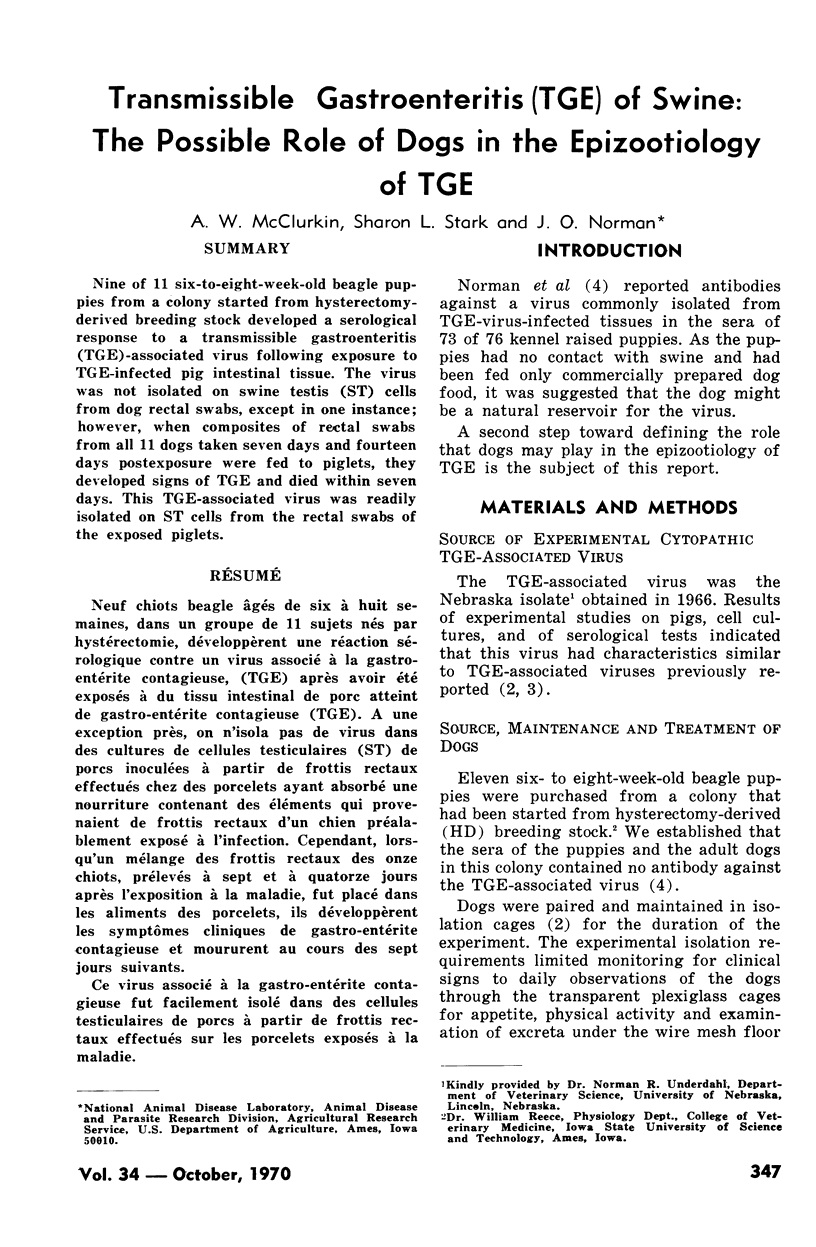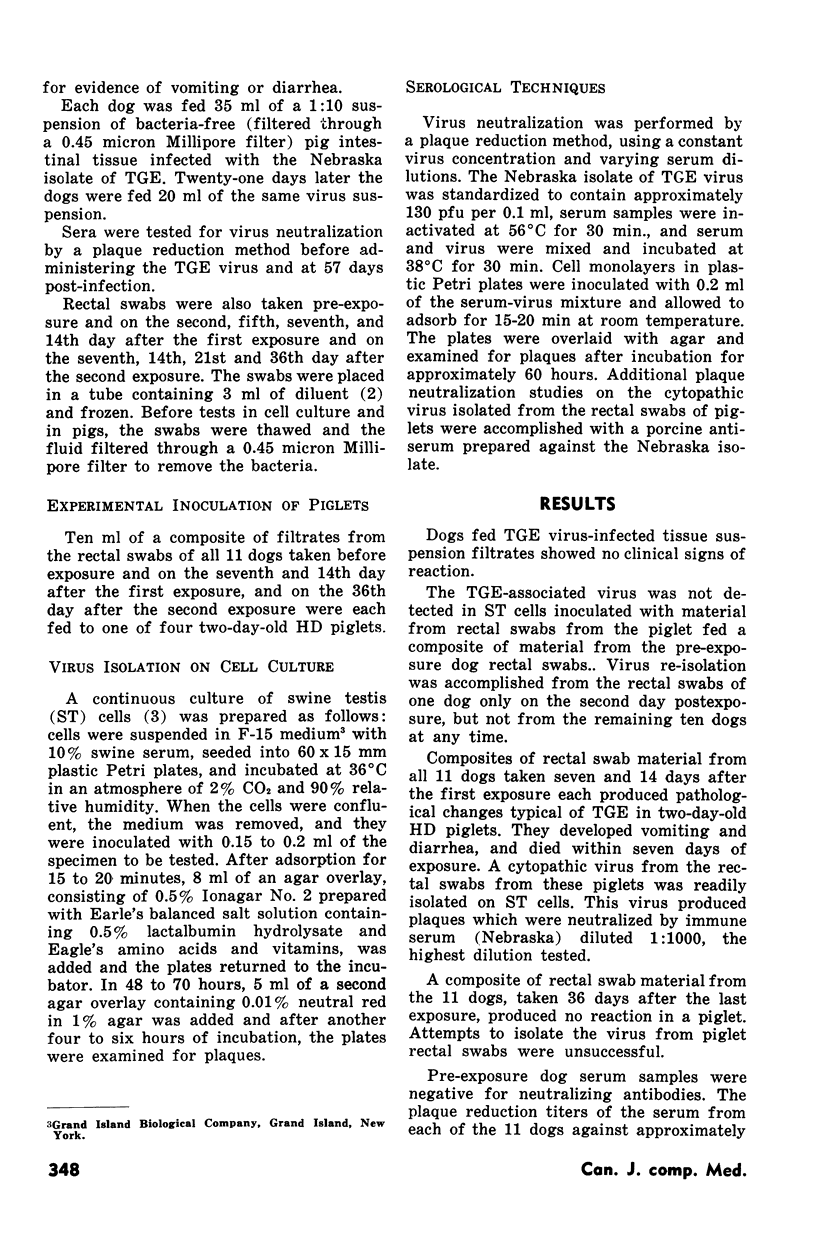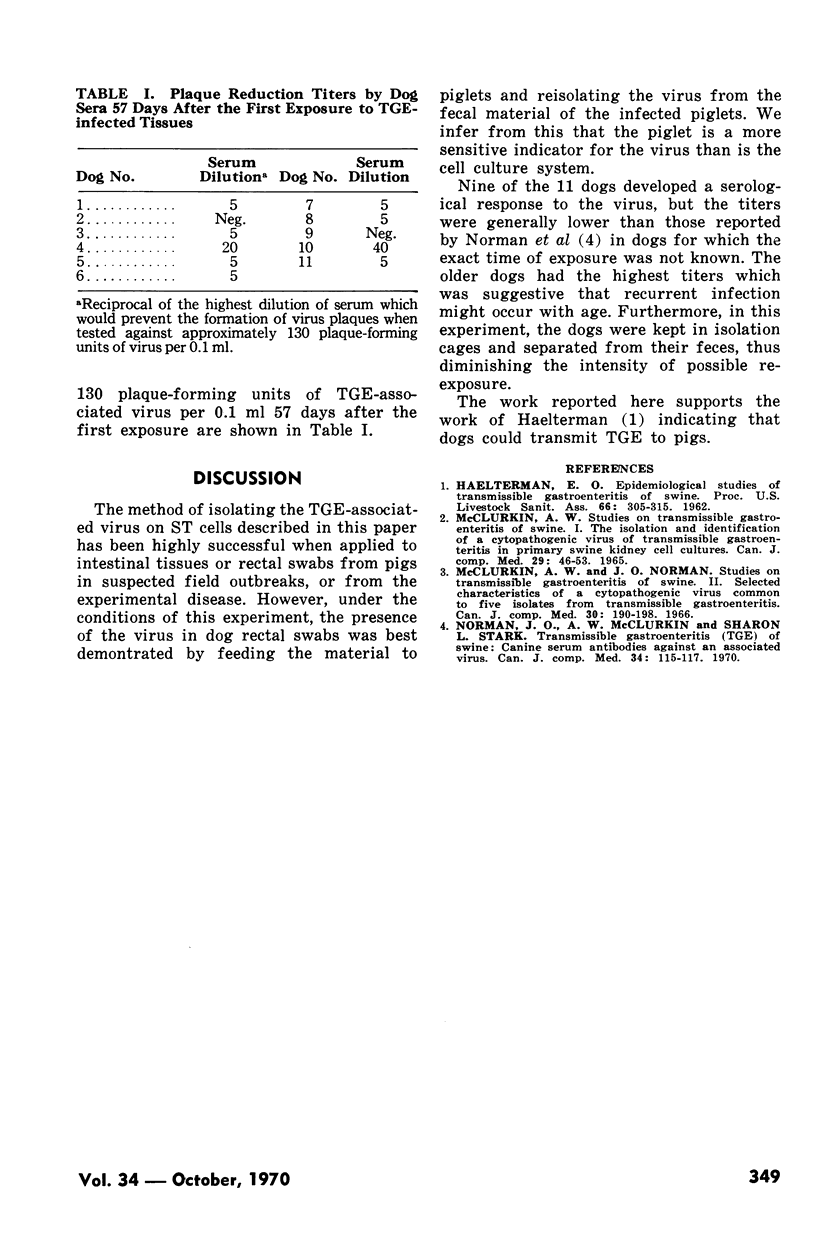Abstract
Nine of 11 six-to-eight-week-old beagle puppies from a colony started from hysterectomy-derived breeding stock developed a serological response to a transmissible gastroenteritis (TGE)-associated virus following exposure to TGE-infected pig intestinal tissue. The virus was not isolated on swine testis (ST) cells from dog rectal swabs, except in one instance; however, when composites of rectal swabs from all 11 dogs taken seven days and fourteen days postexposure were fed to piglets, they developed signs of TGE and died within seven days. This TGE-associated virus was readily isolated on ST cells from the rectal swabs of the exposed piglets.
Full text
PDF


Selected References
These references are in PubMed. This may not be the complete list of references from this article.
- MCCLURKIN A. W. STUDIES ON TRANSMISSIBLE GASTROENTERITIS OF SWINE. I. THE ISOLATION AND IDENTIFICATION OF A CYTOPATHOGENIC VIRUS OF TRANSMISSIBLE GASTROENTERITIS IN PRIMARY SWINE KIDNEY CELL CULTURES. Can J Comp Med Vet Sci. 1965 Feb;29:46–53. [PMC free article] [PubMed] [Google Scholar]
- McClurkin A. W., Norman J. O. Studies on transmissible gastroenteritis of swine. II. Selected characteristics of a cytopathogenic virus common to five isolates from transmissible gastroenteritis. Can J Comp Med Vet Sci. 1966 Jul;30(7):190–198. [PMC free article] [PubMed] [Google Scholar]
- Norman J. O., McClurkin A. W., Stark S. L. Transmissible gastroenteritis (TGE) of swine: canine serum antibodies against an associated virus. Can J Comp Med. 1970 Apr;34(2):115–117. [PMC free article] [PubMed] [Google Scholar]


